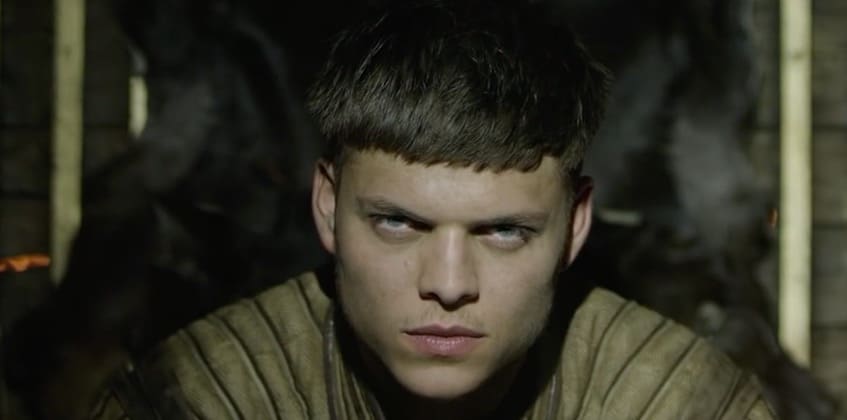
With Vikings due back on our screens later this month, History looks at Ivar the Boneless and also examines the rich culture created by the Vikings.
Alex Hogh Andersen, who plays Ivar, talks about the dynamics at play as the four brothers grow up and says Ragnar’s return is just what Ivar needs to spur him on to greatness.
Ivar has compensated for his disability by using his intelligence and gift for strategy to his advantage. Yet, he is still a ferocious fighter and his most powerful weapon is fear.
Will he end up as Ragnar’s true heir?
Also in a web exclusive, a look at the cuture of the Vikings and the often overlooked contribution to art and indeed our own culture.
Very often TV shows and movies about the Vikings concentrate on their fighting prowess and their great nautical adventures, but this very expansive nature means their culture spread far and wide. Many of their laws and stories influence us to this day.

The Vikings used a jury system and their influence on Britain was profound with part of England known as the Danelaw being ruled by them for several hundred years.
At the time Old English and Old Norse were still quite similar and so many Norse words became part of modern English. In fact the very word law is Norse in origin as are words like window and sky.
Later still the Normans invaded and conquered England and they hailed from the kingdom in northern France that had been founded by none other than Rollo, just over a hundred years before.

J.R.R. Tolkien, author of The Lord of the Ring and The Hobbit, was heavily influences by Norse and Icelandic sagas, indeed this very website’s name is a nod to work he did on the epic poem Beowulf. Tolkien wanted to create a sort of saga for England and many of his characters and tales of dragons stem from the rich oral history of the Norse and early stories written in Old English.

Even the days of the week in the west are partly the ones used by the Vikings with Tuesday (named after Norse god Tyr), Wednesday (named after Woden or Oden), Thursday (named after Thor) and Friday (named after Oden’s wife Frigg).
So for anyone living in an English speaking country the Norse culture has had a far reaching influence.
Vikings is back on Wednesday November 30th at 9/8 c on History.